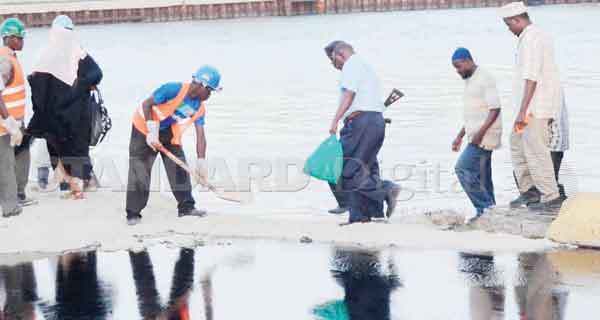×
The Standard e-Paper
Fearless, Trusted News
 |
| Port workers battle to contain an oil spill after a tanker overturned at the Kenya Ports Authority in Mombasa Thursday. [Photo: Kevin Odit/Standard] |
By Joackim Bwana
Mombasa, Kenya: A tanker carrying 20,000 litres of fuel overturned at the Kenya Ports Authority in Mombasa and spilled oil on a road, making it impassible.